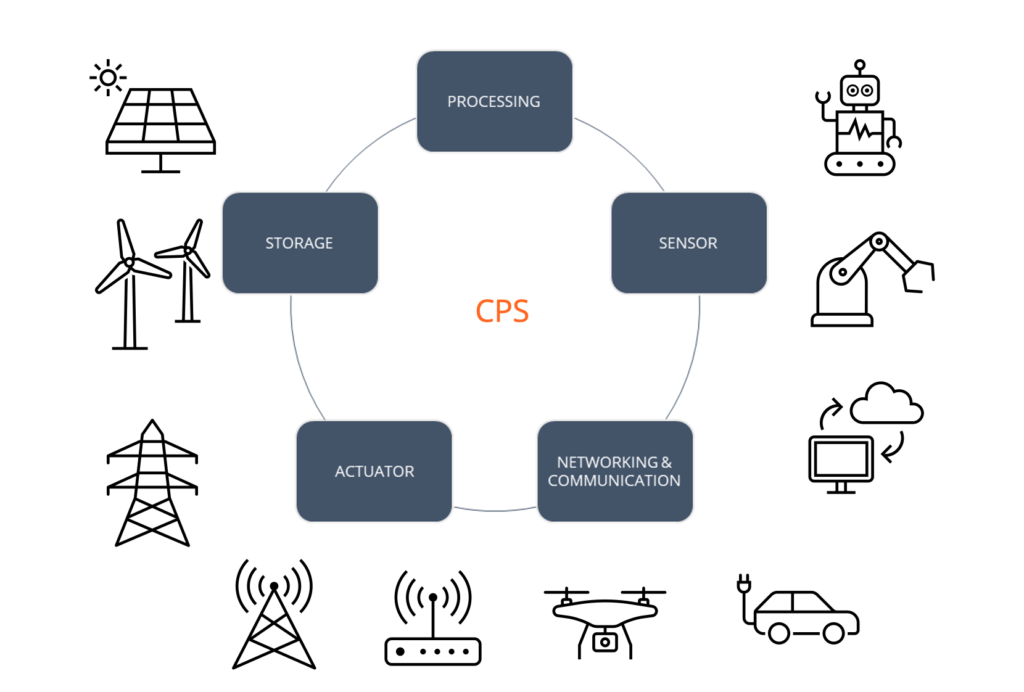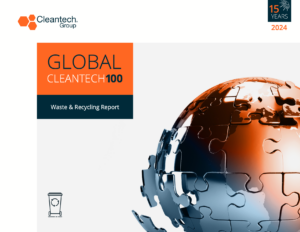Data Security and Cleantech – The Future of Cyber-Physical Systems
Cyber-physical systems (CPS) are intelligent systems that have a physical input and a physical output, and are driven by computational elements to increase adaptability, autonomy and efficiency of the system. The global CPS market is estimated to be worth $86 billion in 2022 with a projected CAGR of 7.9% to a market size of $137 billion by 2028. These systems operate assets and infrastructure valued in the trillions in the energy, manufacturing, transportation, automation and agriculture sectors, amongst others.
For technology to perform its required role, it needs to be unhindered and protected. Data from the environment/sensors, instructions on processing, or output can be compromised and changed, affecting the usability and effectiveness of the system. Cryptographic Key Management, a cybersecurity solution that deals not only with encrypting data but also managing and securing the encryption tools used, is gaining traction for cleantech-relevant applications.

Attractiveness
Cryptographic Key Management involves the generation, exchange, storage, use, destruction and replacement of encryption and authorization keys, and provides a holistic approach to secure data both at rest and in transit, ensuring systems can operate as required. Innovators are employing key generation technologies other than mathematics-based, to address increasing risk posed by advanced computing. Blockchain and quantum processing backed solutions are receiving funding, primarily at early-stages of investment, as traditional techniques such as 3DES and RSA may become obsolete in the coming years when quantum computing reaches market.
Embedded security is also becoming crucial as assets become more distributed, requiring processing on the edge. We spoke with Patricia Friar, CMO at Kinnami, for their take on data security. Kinnami offers a holistic solution to data security by “integrating user access management, distributed storage management, and encryption to deliver distributed encrypted fragmented storage.” Their solution “separates operational responsibilities in the protected system between the end-user and system administrator to ensure data is decrypted only when and where it is needed.”
Legacy systems and infrastructure pose a significant challenge in security. For example, risk of hacking and resultant damages is high with utility systems, and with their often outdated operating systems that are not built with cybersecurity in mind, solutions can not be easily retrofitted. PQShield is addressing exactly this challenge by “helping upgrade hardware and software in critical infrastructure and phasing out legacy cryptographic solutions such as RES.” The start-up is focused on providing “post-quantum cryptography solutions as long-lifecycle systems need to comply with both current and future cryptography standards”.
Entrepreneurial Support Organizations are extending their hand to promote and innovation in data security. The Canadian government announced funding for data security solutions that can secure its agricultural sector including supply. The US government, through NREL, announced its Clean Energy Cybersecurity Accelerator to bring together federal infrastructure and support, energy asset owners, and innovators.
Recent Deals
December 2021: Karamba Security, provider of embedded end-to-end security for connected devices and vehicles, raised $10 million in Series B funding from VinFast, Samsung Ventures, YL Ventures, Fontinalis Partners, Liberty Mutual Strategic Ventures, Presidio Ventures, Glenrock, Paladin Capital Group and Asgent.
November 2021: QuSecure, provider of zero-trust endpoint management and post-quantum cryptography solutions, raised $1.5 million in seed funding. QuSecure also raised another $1 million this year and participated in the Techstars Space Accelerator program.
September 2021: ARQIT, developer of a quantum encryption platform for industrial IoT and smart cities, went public via SPAC merger with Centricus Acquisition Corp. The listing on the NASDAQ valued the company at $1.4 billion.
April 2021: Kinnami, provider of fragmented encryption solutions with data distributed over a network of devices to ensure sovereignty, received $100,000 in grant funding from NGA Accelerator. It was also part of the Seraphim Space Camp 2020 cohort and the ICE71 Accelerate 2020 program.
Business Models
Encryption and Key Management solutions require continuous support and updates as systems progress, resulting in solution-as-a-service as the major business model in offering today. A few variations include:
- Software-as-a-service: Kinnami offers its AmiShare™ platform for data security management for IoT, 5G, UAVs and other autonomous systems.
- Platform-as-a-service: ARQIT’s QuantumCloud™ is a cloud-based platform that can generate limitless keys for any connected device.
- Encryption-as-a-service: Fortanix offers a centralized data security platform both across the cloud and on-premises with pay-as-you-go full key management solution.
Competition
Innovators are relatively new to the cybersecurity space, especially in cleantech, as infrastructure costs are high. Although it introduces a third-party in the security system, innovators have to rely on corporates such as AWS, Google and Microsoft for B2B hosting infrastructure for their solutions.
Accessing real-time data for testing out solutions is also a pain-point for innovators, with clients preferring corporates with a track record for their security solutions. Government R&D programs are proving fruitful for US innovators, to gain access to data, expertise and infrastructure to test and build out their technologies.
Partnerships with corporates with expertise in cybersecurity is providing a front-footing for innovators. For example, Rockwell Automation has partnered with Crowdstrike, a provider of end-to-end security including key storage, to form part of Rockwell’s integrated offering. Honeywell, on the other hand, has merged its cyber research division with Cambridge Quantum Computing, a start-up developing “unhackable” encryption keys.
Look out for…
With advances in computing, lightweight encryption, entropy-as-a-service, and other next-gen cryptographic solutions will come to the forefront. Increase in regulatory measures will drive embedded security in smart devices, as well as the need for a standardized framework/policies for encryption.
Keep a close look at the measures to be announced by the US National Institute of Standards and Technology in 2022 for encryption, as well as advances in quantum computing!



